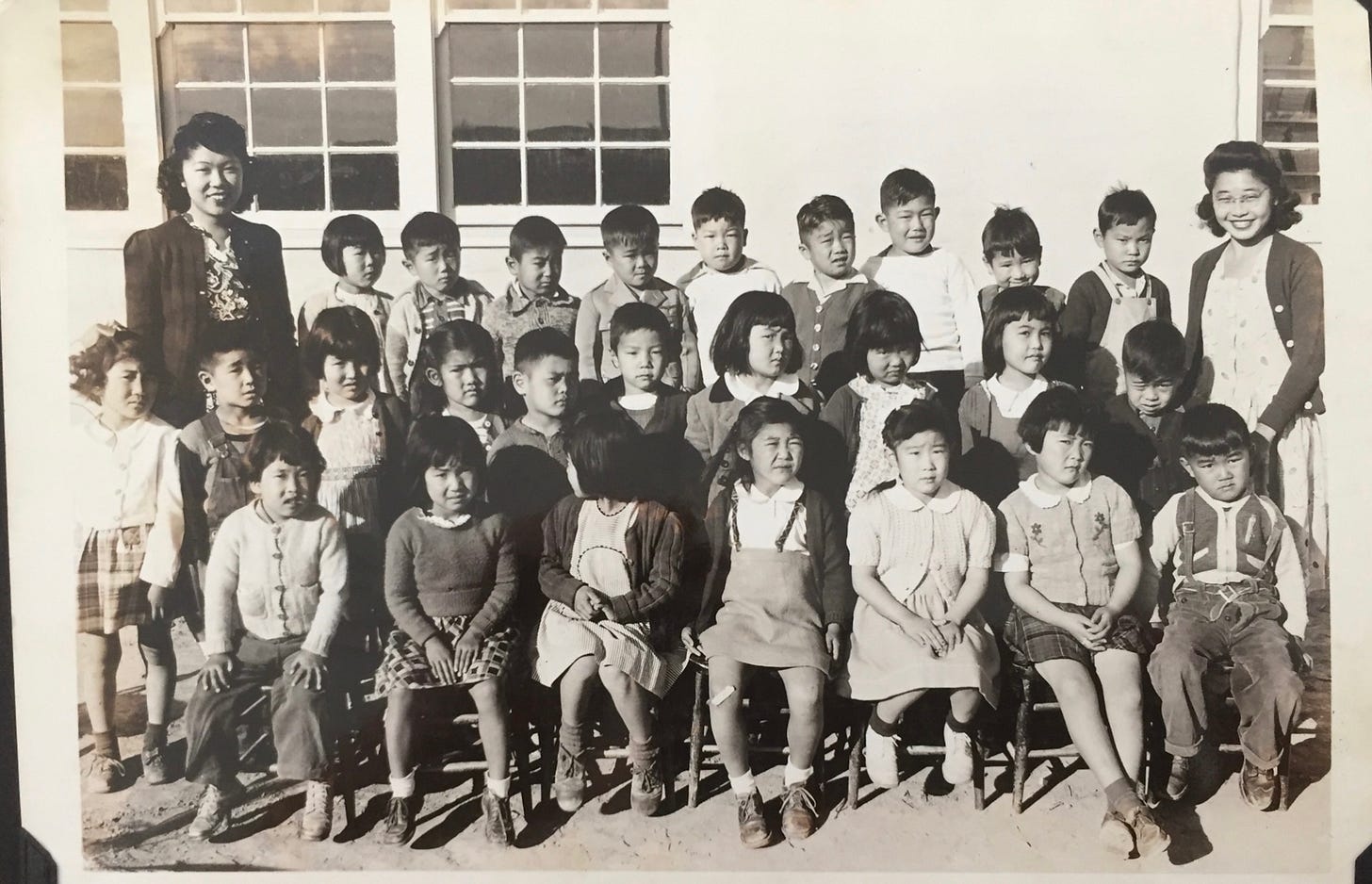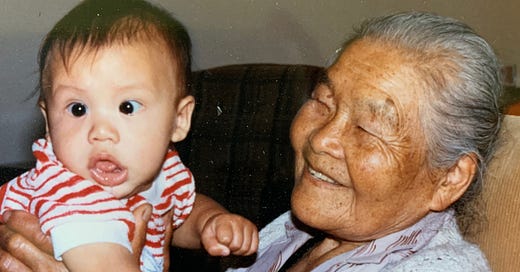Breeding, and the Art of Subjugation
"Normal" is the word you use when something keeps happening.
Contains references to the 2018 Paramount series Yellowstone, spoiler-free.
My mother is third-generation Japanese-American. Her grandmother emigrated to the United States from Japan in the early 1910s, and my mother’s mother, Eva, was born on Terminal Island in San Pedro, California in 1922. Eva was interned in the Japanese-American concentration camps in Poston, Arizona, from 1942 to 1945.
In order to establish the concentration camps in Poston, the United States War Relocation Authority took land over the objections of the tribal council of the Colorado River Indian Reservation, and moved in 17,000 Japanese, temporarily making Poston the third-largest city in Arizona1.

Eva would end up marrying a Japanese-American man, my grandfather Morimitsu, in April of 1948. They lived in Seabrook, New Jersey at the time. They lived around and knew Americans of other races, but they did not choose to marry someone of a different race. It is unclear to me how enforceable it would have felt, had they any desire to do otherwise, but miscegenation was illegal in the United States until 1967.
I was born in Phoenix (less than 140 miles, as the crow flies, from Poston), but raised in the suburbs of Tulsa, Oklahoma, squarely in the convergence of the Creek, Cherokee, and Osage Nation reservations. These reservations were established following the 1930 Indian Removal Act, which was passed by the United States Congress as a response to decades of violent ethnic cleansing by American settlers.

Nowhere in Oklahoma is far from ranch country. I grew up around, went to church with, men and women who lived by their hands, worked the land, raised livestock. You knew them by their calluses and by how they would casually discuss killing animals, usually a varmint who made the mistake of crossing an invisible line. I ate venison and rabbit as a child.
I attended the University of Tulsa, which traces its founding to the Presbyterian School for Indian Girls and its evangelical efforts in Muscogee Indian Territory.
Recently I’ve been watching the Kevin Costner show Yellowstone. The storytelling is both epic and intimate, depicting the political and familial struggles of a Montana dynasty. The plot is deeply immersed in indigenous tribal conflict, with and against “progressive” development, outsiders, condos, and cultural atrophy. In one early scene an old Native man is permitted to shoot a hapless buffalo on a reservation, as an act of cultural preservation. Look at what we’ve been reduced to.

Animal handling requires, or maybe creates, a certain kind of person. Families who spend enough time breeding, training, riding, or racing horses are, or become, horse people. You take a good horse and let it fuck another good horse and that is how you make a better horse.
One thing about horses, which Yellowstone depicts a bit over-dramatically, is that horses are not born like humans, tiny and helpless for years before being able to run and jump. When a horse gives birth, out comes a horse, a screeching, stumbling beast that can gallop within hours of hitting the ground, knobby legs weaving like prizefighters.
My Japanese-American grandmother was probably not thinking about optimized breeding stock when she married my grandfather. The extent to which it was even fully her decision is also a generational matter. The family calculus is always more complicated, but familiarity — even etymologically — is key. You know what you’re getting, as it were, when you choose someone like yourself to continue the bloodline.
It is interesting to watch the 2024 election results and see racial lines increasingly blur between conservative and progressive coalitions. Liberals often fail to understand why indigenous and immigrant-descended populations embrace conservative values, or see progressives as colonizers trying to overthrow or appropriate their way of life.
Horse people see gender differently. You need a boy horse and a girl horse to make another horse. Why would you call anything else a family? Why should someone obviously un-fit be permitted to carry forward our uniquely desirable traits? Don’t you want the best horse?
If you are confused as to why not all “brown people” hurry to internalize Woke Values, this is an observational point on which to spend a moment.
A historical-personal fun fact is that the internment camps were built by city-scale construction contractor Del Webb, which also built Sun City, Arizona. “The Original Fun City!” is where the grandparents on the white side of my family moved after retirement, leaving New Jersey. My parents moving to be near them is the reason I was born in Phoenix.





